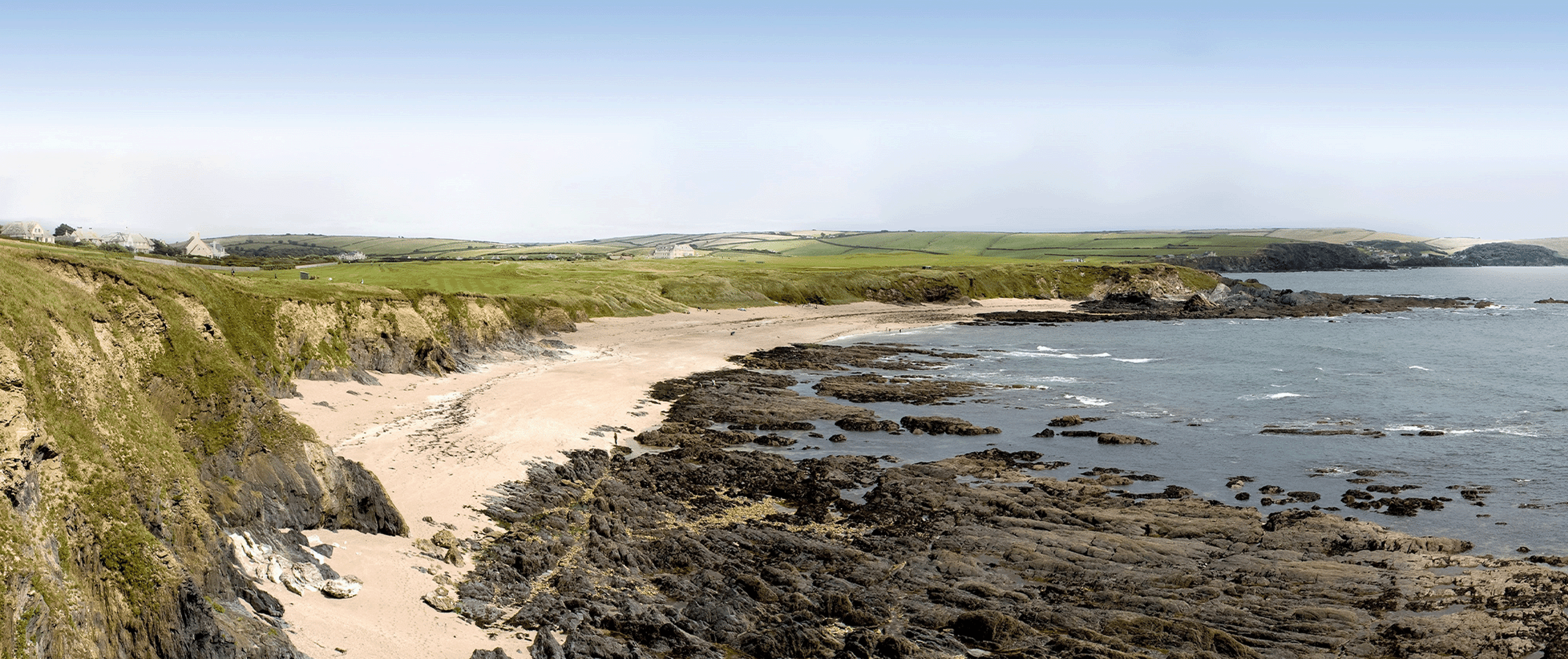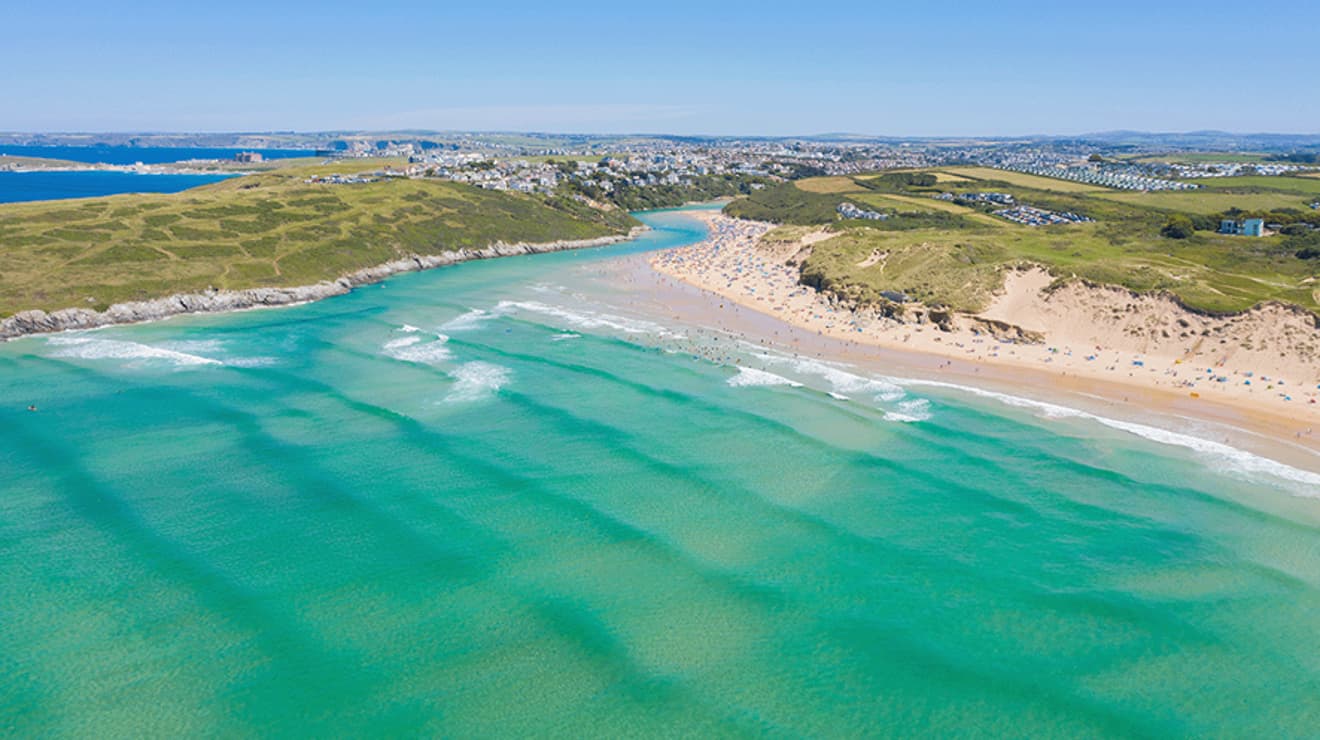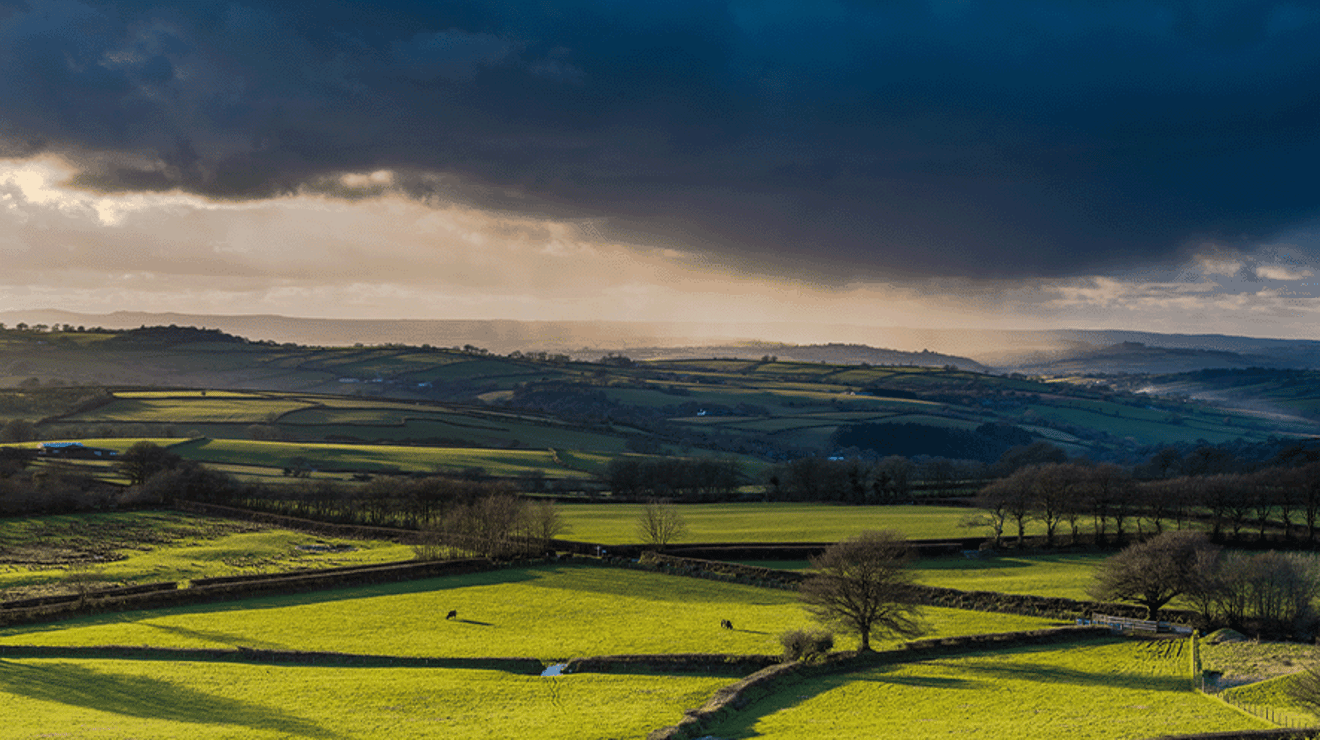Thurlestone South
Thurlestone offers the visitor two sheltered sandy beaches to choose from. Leasefoot, the smaller of the two lies next to Thurlestone Golf Club, while the larger Thurlestone Sands is just along the coast, closer to South Milton. Thurlestone Sands is a popular location for a wide variety of water sports.
Because Thurlestone Sands is accessed via a single-track road, it is relatively remote and does not get the crowds that are usual on equivalent Devon beaches. The beaches lie in a designated Area of Outstanding Natural Beauty and it’s easy to see why. Care does however need to be taken further out to sea. and signs here warn of dangerous rip-tides, currents and sudden shelving.
A notable feature at Thurlestone Sands is the famous Thurlestone Rock, an arched natural rock formation lying just off the rocks at one end of the beach. This is best viewed at high tide. The rocky outcrops flanking the beach provide shelter to the main beach area and expose some interesting rock pools at low tide.
Although dogs are allowed on the beach at any time of year, there are strongly enforced dog-fouling laws here, which help to keep the golden sand lovely and clean.
Overflow locations
The map below shows the locations of the storm overflows that have the potential to impact water quality at this bathing water.
The map shows whether or not a storm overflow is currently active, the time and duration of the last spill at that location, and our investment commitments that are specific to that overflow.
Thurlestone South storm overflow map
Water quality sample results
The graphs below show the significant reduction in harmful bacteria in the Environment Agency’s (EA) water samples since the 1990s. E. coli and Intestinal Enterococci exist in all open water - they are found in human and animal poo, and get into the water via sewage spills, road drainage, agricultural livestock, or wildlife and birds. The EA uses the levels of these bacteria to decide whether to award this beach bathing water status.
Investment programme up to 2025
The additional storm water storage was installed in March 2024 at South Milton sewage treatment works, as agreed with the Environment Agency, and as part of the Water Industry National Environment Programme at a total cost of around £3,800,000.
The 2025-2030 investment programme is currently being scoped out. If you’re a community group or part of a local network and would like to have your say see ‘Your Beach, Your Say, Our Investment’.
5 year overflow spill information
The data shown in the table below is the reported annual total spill number for each overflow which has been identified by the EA for this bathing water.
The assignment of an overflow to the bathing water does not always mean an impact will occur, it can be dependent on a number of factors such as tidal state and weather conditions. Sometimes it has been allocated just for investigation purposes and has no impact at all.
All data collected goes through vigorous quality assurance processes before being included in the counts. Sometimes debris can trigger false spills to be recorded, resulting in potentially higher than actual spill numbers.
Number of spills
| 2024 | 2023 | 2022 | 2021 | 2020 | |
|---|---|---|---|---|---|
| South Milton sewage treatment works settled storm overflow | 50 | 93 | 31 | 34 | 63 |
| South Milton storm overflow | 1 | 10 | 7 | 4 | 0 |
The beach profiles were created in line with information provided by our partners, Environment Agency, RNLI, Keep Britain Tidy, MCS - Beach Guide and British Beaches.


